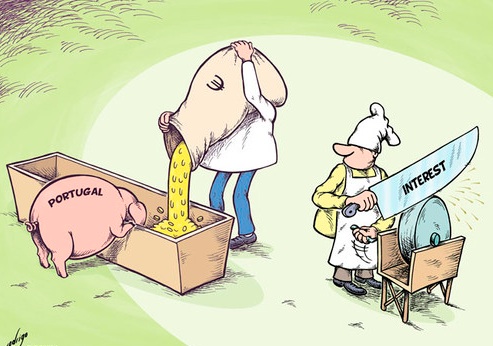Is Portugall the new Greece?
F Willliam Engdah writes: The illusion that all is well in the Euroland following the brutal Greek austerity agreement this summer is soon to be rudely disrupted by a new Eurozone crisis, this in what was hailed as the IMF and ECB “success story”–Portugal. Very soon, perhaps in a matter of weeks, it will become clear again, as in Greece, or in Germany in 1931, that austerity, spending cuts and tax increases are not a way out of a national economic crisis.
The October 4 national parliament elections have blown the pretty facade off of a game of statistical manipulation, financial tricks and outright fraud that allowed a conservative free market government to claim success in ending Portugal’s severe economic crisis.
The government of Prime Minister Passos Coelho, a free market neo-liberal, lost the majority. His right-wing Social Democratic Party (PSD) won the most votes of any party, but his austerity coalition lost their majority, winning only 38.5% of the vote. Almost two-third, 62% of all voters voted for one of the anti-austerity parties of the left socialist coalition. Coehlo has been in power since June 2011 when the Euro crisis caused panic exit of high-debt Eurozone countries by international investors.
The decisive campaign issue this time was the severe austerity Coehlo’s coalition had followed since 2011. Calling for easing of austerity and even a rethink of Portugal’s relation to the Euro, much as in Greece last January when Alexei Tsipras and his leftist anti-austerity propelled Syriza into power. Is Portugal the New Greece

